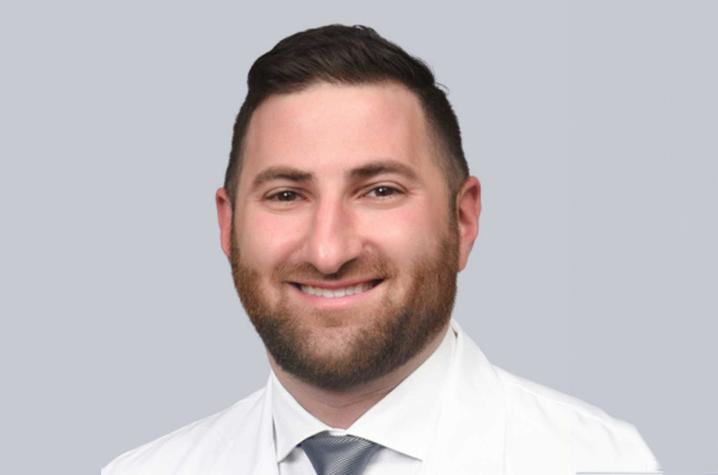How much exercise do you need for a healthy heart?

The University of Kentucky Public Relations & Strategic Communications Office provides a weekly health column available for use and reprint by news media. This week's column is by Marc Paranzino, D.O., sports cardiologist at UK HealthCare’s Gill Heart and Vascular Institute.
LEXINGTON, Ky. (Feb. 26, 2024) — February is Heart Month, a time to focus on our cardiovascular well-being and creating a healthy lifestyle. It’s also important to recognize the warning signs of heart disease and understand the exercise paradox.
Regular exercise has many benefits for your body but doing too much can sometimes lead to negative health outcomes.
The American Heart Association (AHA) recommends a minimum of 150 minutes (about two and a half hours) of moderate-intensity workouts per week, 75 minutes of vigorous workouts or a combination of both. These guidelines serve as a benchmark for maintaining heart health and overall well-being.
Listening to your body is important for safe and effective workouts. Pushing yourself too hard can lead to overexertion, potentially aggravating existing health issues. Awareness of your physical limits is key, and any signs of discomfort or distress should be considered. Striking a balance between pushing boundaries and avoiding excessive strain is crucial for long-term heart health.
Understanding your family history is crucial. Before starting any exercise, assess who in your family has a history of heart disease, its severity and what your risks are. Knowing your family’s health history can create a space for informed decisions about your workout routines.
For those with a higher risk, consulting a doctor before initiating any exercise program is essential. While regular physical activity is generally seen as beneficial, it is important to tailor workouts to individual health conditions.
Your primary care physician can provide personalized recommendations, making sure your exercise aligns with your cardiovascular health needs.
Contrary to common fears, the percentage of fatal heart attacks during exercise is relatively low. The baseline risk of a heart attack is significantly higher for individuals who lead “couch potato” lifestyles compared to those who engage in regular physical activity. Regular exercise daily can create a healthier lifestyle and eliminate fears of distress during activity.
People without underlying medical issues can generally begin a light to moderate exercise program without requiring a doctor's clearance. But it’s important to check in with your body and notice any changes in how you feel. Regular exercise protects the heart, the likelihood of a cardiac event increases during or immediately after intense physical activity.
Heart Month is an opportunity to prioritize heart health, but it’s important to take steps toward a healthy heart all year long. Understand the exercise paradox, acknowledge family history and regularly consult with health care professionals.
If you or a loved one exhibits any signs of heart issues, it is crucial to seek help promptly from health care professionals to ensure early intervention and effective management.
UK HealthCare is the hospitals and clinics of the University of Kentucky. But it is so much more. It is more than 10,000 dedicated health care professionals committed to providing advanced subspecialty care for the most critically injured and ill patients from the Commonwealth and beyond. It also is the home of the state’s only National Cancer Institute (NCI)-designated Comprehensive Cancer Center, a Level IV Neonatal Intensive Care Unit that cares for the tiniest and sickest newborns and the region’s only Level 1 trauma center.
As an academic research institution, we are continuously pursuing the next generation of cures, treatments, protocols and policies. Our discoveries have the potential to change what’s medically possible within our lifetimes. Our educators and thought leaders are transforming the health care landscape as our six health professions colleges teach the next generation of doctors, nurses, pharmacists and other health care professionals, spreading the highest standards of care. UK HealthCare is the power of advanced medicine committed to creating a healthier Kentucky, now and for generations to come.




